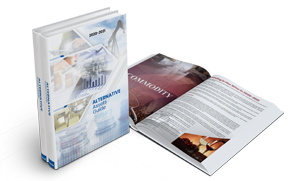
Never miss an important update |
Click to get notified about important updates only. |

99 Alternatives
Opportunities are Infinite
Carmack was introduced in 1906 as an amendment to the Interstate Commerce Act of 1887 (part of the ICC Termination Act 1995).
It aims to impose a uniform recovery regime by the interstate shippers against the freight forwarders.
It allows the shippers to pay for the losses or injuries to the property and is associated with interstate cargo claims,
Carmack controls and limits the liability of common carriers for in-transit cargo and pre-empts common or state law remedies that grow the transporter's liability beyond the actual loss or damage to the property.
Carmack is relevant as it extends the rule's reach to motor and rail transportation between a place in one state and another.
It can be placed between a place in the US and a foreign location.
The act fixes the liabilities of the rail, freight forwarders, pipeline, motor or other international commodity carriers under the receipt and bills.
Meaning of the associated terms
The bill of lading is the document that contains terms and conditions that bind the shipper and all the connecting carriers.
The straight bill of lading is used for goods consigned or destined to a person whose name is mentioned in the document. Such a bill can be negotiable or non-negotiable.
There are multiple varieties of such bills, like a clean bill, where it is presumed that all the cargo mentioned in the document was loaded per the conditions mentioned. A through bill is used for international trade between the US and foreign countries.
A shipper is a person who supplies the goods, and the holder is the person who has possession of the property right or the bill of lading.
A multimodal is used when the carrier transports the cargo from the origin to the destination by using more than one type of transportation.
Tariffs indicate the actual rates, charges, rules, freight commodity class, regulations, classifications and practices related to the carrier.
The term Consignee is used for the person named in the bill of lading to whom the goods will be delivered.
The term consignor is used for the person named in a bill of lading from whom the goods have been received for shipment.
A broker is responsible for negotiating the compensation between the provider and the arranging party. The private shipper is liable as a bailee for negligence, and the plaintiff must prove that they caused the damage or loss.
A freight forwarder holds himself out to the general public to provide transportation for specified predetermined compensation.
They act as a receiving agent when the freight forwarder uses a motor to receive property from a consignor and consents to the execution of the bill of lading.
A freight forwarder is a delivery agent when it consents to the motor carrier's delivery of the property to a consignee.
The liability and duties, as per Carmack, are determined as per the bill of lading used in the shipment of the goods and the limits are based on the rates or tariffs.
The remedies mentioned in the law pre-empt all causes of action, seeking redress for losses or damages while transporting goods in interstate commerce.
However, if one investigates a claim where they are held liable for specific damage and if the shipper has agreed in writing to pay the claims for damage or repairs,
Where they have the right to refuse to ship in case they cannot provide adequate safety; in such case, they may be liable to pay the specified amount of money agreed upon as per the contract.
Further, a time limit (or deadline) exists to file the claim (e.g., nine months).
From liquifying your asset to any time you want to have...
Impact investing in real estate is a growing trend with...
Whether buying your first home or selling your...
What is better Silver or Sterling Silver? We all know...
How much do Twitch Streamers Make? Man is fun-loving...
Shorting a stock is one of the most outstanding...
Copyright © 2025 99alternatives Ltd. All rights reserved.
Designed and Managed by Mont Digital


